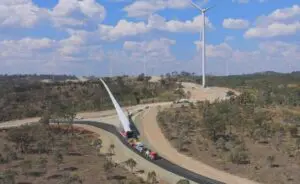As the latest round of international climate change talks kicks off in Madrid this week, environmental campaigners have called on polluting countries – and that includes Australia – to increase their action, or be forced to pay for the costs of climate change on poorer countries.
The Madrid talks, it is hoped, will finalise the rules that will guide the operation of the Paris Agreement, and will be used as a platform to encourage countries to boost their emissions reduction targets. Major polluting nations are also already facing calls to agree to a ‘loss and damage’ mechanism to compensate poorer countries for the impacts of climate change.
In a briefing paper released ahead of the talks, Oxfam Australia has argued that countries like Australia have a responsibility to act on climate change, and should be made to cover the costs of climate change, which is set to disproportionately impact on small island developing states, many of which are located within the Pacific region.
Oxfam says Australia, as a large user and global supplier of fossil fuels, has an obligation to act on climate change as a measure to reduce the predicted devastating impacts on countries in the Pacific region that made negligible contributions to global emissions, pointing to the fact that seven of the ten most vulnerable countries to the impacts of climate change are located in the Pacific region.
“Our governments are fuelling a crisis that is driving millions of women, men and children from their homes and the poorest people in the poorest countries are paying the heaviest price. Governments can and must make Madrid matter,” says acting executive director of Oxfam International Chema Vera.
“They must commit to faster, deeper emissions cuts and establish a new ‘Loss and Damage’ fund to help poor communities recover from climate disasters.”
Oxfam estimates that the costs of climate change have increased substantially over the last five decades, with costs, and the displacement of populations, set to grow further as the impacts of climate change are amplified by increasing global greenhouse gas emissions.
The organisation says that as many as 95 per cent of all forced relocations and displaced peoples in small-island states over the last decade were caused by tropical cyclones and storms. The impact of such storms is being amplified by climate change, as warming oceans drive more destructive conditions.
Oxfam finds that on average, the costs of extreme weather events represent approximately 2 per cent of national income. However, this figure is substantially higher for developing small island states, where the costs can be as high as 20 per cent of national income, as was the case for Fiji when it was impacted by Cyclone Winston in 2016.
Many island nations across the Pacific region face an existential threat from climate change. Large parts of countries like Kiribati, Tuvalu and the Marshall Islands reside just a few metres above sea-level, and with climate change accelerating sea-level rise at a rate much faster than historical levels, these countries are coming
The negotiations will also consider the introduction of a proposed ‘loss and damage’ mechanism, that would see high polluting countries compensate other countries and communities that have been impacted by climate change.
This would potentially include compensation for communities displaced as a result of severe weather events, including unprecedented bushfires that have impacted large parts of Australia in the lead up to this year’s summer.
“The current bushfires in Australia have shown that nobody is immune to the impacts of the climate crisis,” Bradshaw said. “Our research reaffirms that communities in the Pacific face particularly severe impacts from global heating, including being forced from their homes by extreme weather disasters.
“The Australian Government needs to move beyond coal and back the Pacific Islands and other vulnerable nations in their calls for a new loss and damage finance facility under the Paris Agreement. It’s only fair that we add our support to this, as well as further cutting our emissions, considering our much greater responsibility for the crisis.”
But a ‘loss and damage’ mechanism is unlikely to win support from countries like Australia. At an earlier round of talks, Australian negotiators questioned the strengths of the links between extreme weather events and climate change, expressing doubt over the potential responsibility of developed nations.
Australia strongly opposed the adoption of any language that acknowledged its disproportionate contribution to global emissions, and any suggestions of its particular responsibilities to act on climate change, at the Pacific Islands Forum held earlier in the year.
Federal minister for energy and emissions reduction Angus Taylor is due to attend the talks as part of Australia’s delegation.
The trip to Madrid may provide Taylor some respite, after last week’s parliamentary sitting was focused on a formal police investigation launched into circumstances of falsified travel information on City of Sydney travel expenses.
However, a request from Taylor to be granted a parliamentary voting “pair” by the Labor opposition was denied, preventing Taylor from being able to head to talks in Paris hosted by the International Energy Agency, and avoid further scrutiny during this final week of parliamentary sitting.











